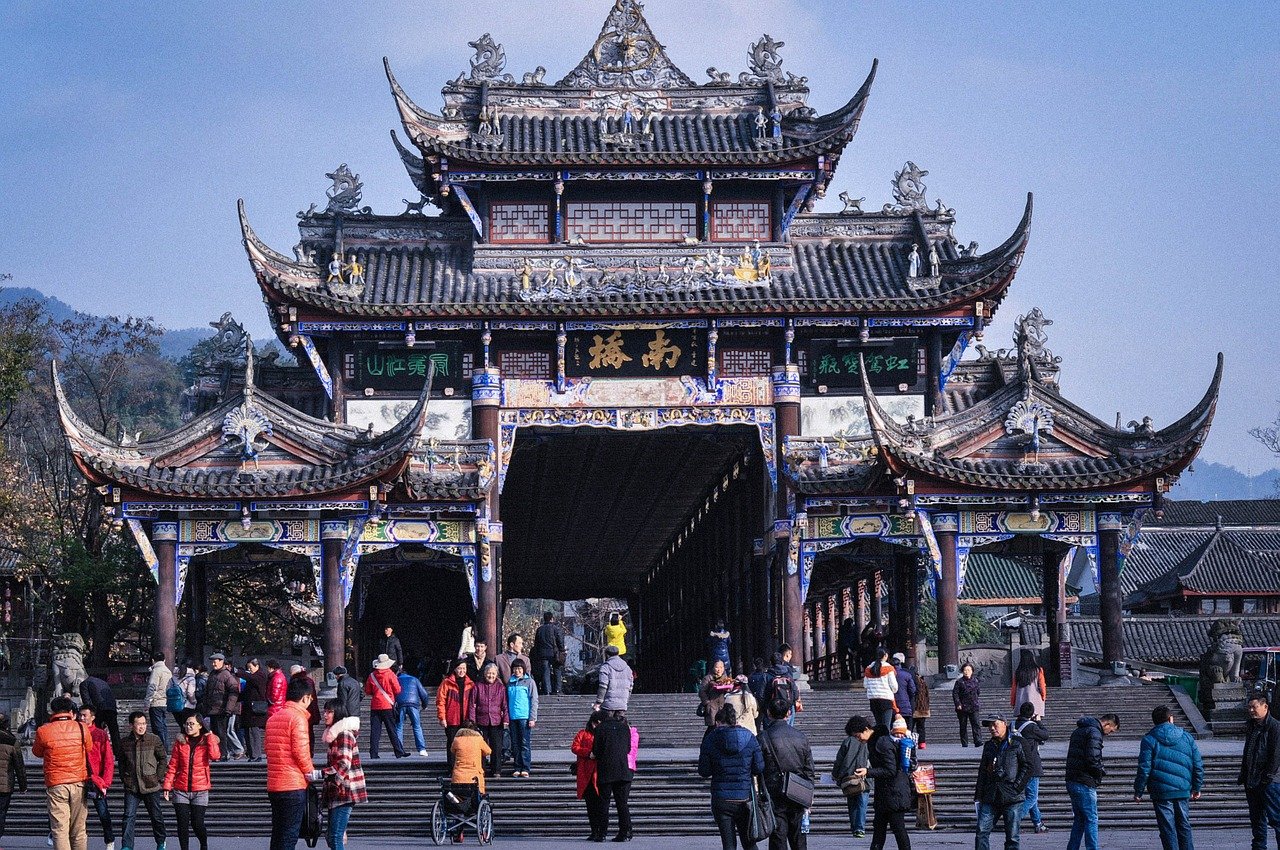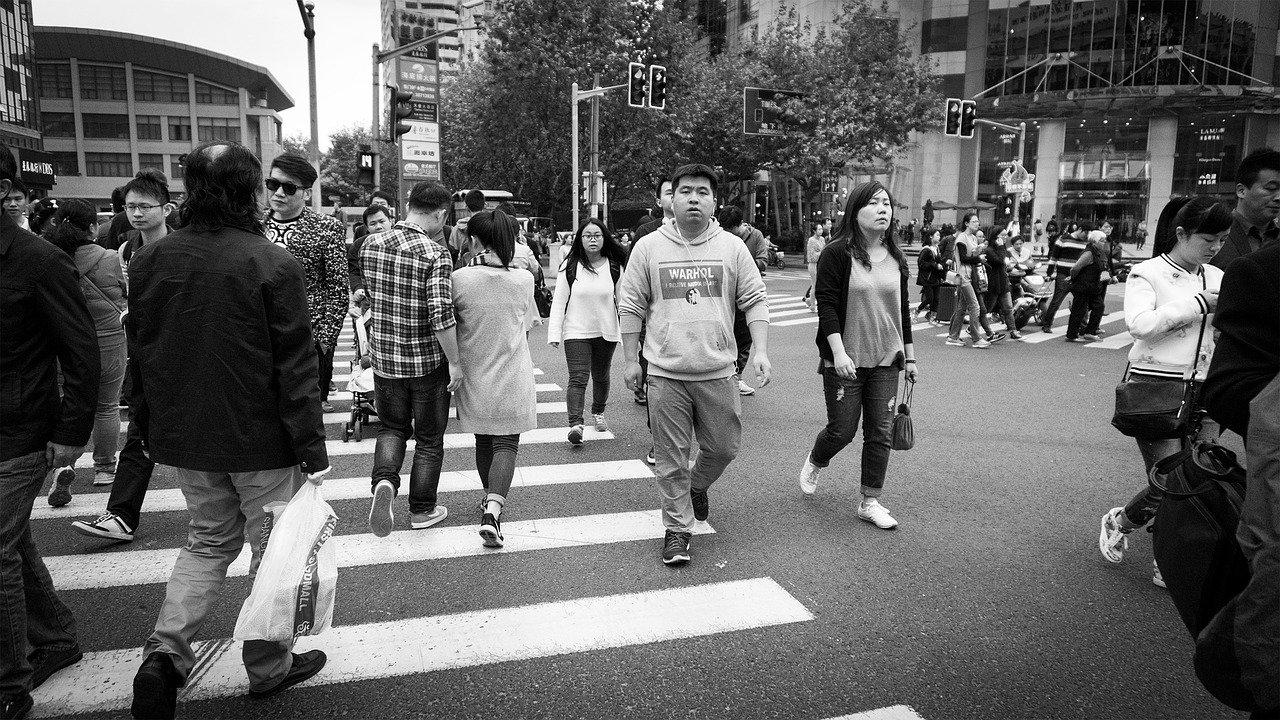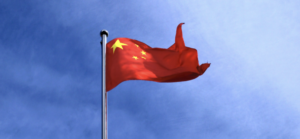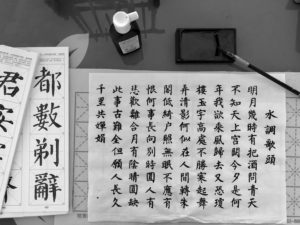Are you planning your first trip to China? Or are you learning Mandarin and want to expand your vocabulary? Either way, this article will introduce you to all the important basic phrases and words you need to know to have your first conversation in Chinese.
If you’re only just starting to learn Chinese and you don’t really know how to go about it, just know that this language, just like any other one, can be mastered quickly – even if it doesn’t seem that way. Get inspired by language learning tips, find your motivation, and learn these words and phrases to be confident speaking Chinese.
Now, let’s start with the essential Chinese words and phrases for your first Chinese trip and conversation.
Greetings: How to Say “Hi” and “Goodbye” in Chinese
There are many ways to say hello in Chinese, as well as goodbye. As a beginner learner, don’t feel pressured to know all the phrases native speakers use to say hello and bye, but they will surely appreciate your knowledge.
Phrases Chinese People Use to Greet Each Other
- “Hello” – 你好 (nǐ hǎo)
- “Hey” – 嘿 (hēi)
- “Hello” (polite) – 您好 (nín hǎo)
- “Good morning” – 早上好 (zǎoshang hǎo)
- “Morning!” – 早! (zǎo!)
- “Good afternoon” – 下午好 (xiàwǔ hǎo)
- “Good night” – 晚安 (wǎn’ān)
- “How are you?” – 你好吗? (nǐ hǎo ma?)
- “What’s up?” – 干嘛呢? (gàn ma ne)
- “What’s up?” – 怎么了 (zěnmeliǎo or zěnmele)
- “Have you eaten?” (As in “How are you?”) – 你吃了吗? (nǐ chīle ma?)
- “Nice to meet you” (colloquial) – 幸会 (xìng huì)
- “Nice to meet you” (more formal) – 认识你很高兴 (rènshí nǐ hěn gāoxìng)
- “Long time no see” – 好久不见 (hǎojiǔ bùjiàn)
- “Bye bye” – 拜拜 (bàibài)
- “Goodbye” – 再见 (zàijiàn)
- “See you later” – 回头见 (huítóu jiàn)
- “See you tomorrow” – 明天见 (míngtiān jiàn)
Know Your Way in Chinese: How to Ask and Understand the Directions
Although there are many smartphone apps you can download to get you around a new country or city nowadays, you might also find yourself in a situation where there is nothing else you can do but ask for directions.
And it’s also a great way to practice your Chinese speaking skills. Why not ask even if you already know the directions? As they say, practice makes perfect.
11 Essential Mandarin Phrases to Guide You Around Any Chinese City:
- “Excuse me, can I please ask you for directions/the way?” – 不好意思,我可以向你问路吗?(bù hǎoyìsi, wǒ kěyǐ xiàng nǐ wènlù ma?)
- “Excuse me, where is Pingguo Hotel?” – 请问平果旅馆在哪里? (qǐngwèn píng guǒ lǚguǎn zài nǎlǐ?)
- “Is there a bank near here?” – 这里附近有 银行吗? (zhèlǐ fùjìn yǒu yínháng ma?)
- “Go straight ahead.” – 往前走。(wǎng qián zǒu)
- “Turn left.” – 转左。(zhuǎn zuǒ) or 往左拐。(wǎng zuǒ guǎi)
- “Right” – 右 (yòu)
- “The hotel is on the right.” – 旅馆就在右边。(lǚguǎn jiù zài yòubiān)
- “North” – 北 (běi)
- “South” – 南 (nán)
- “West” – 西 (xī)
- “East” – 东 (dōng)

“Help” and Other Emergency Words in Chinese
In general, China is a safe country for tourists. However, before any travel, have a list of emergency words ready.
- “Help!” – 救命!(jiùmìng!)
- “Fire” – 火 (huǒ)
- “Fire station” – 消防局 (xiāofángjú)
- “Ambulance” – 救护车 (jiùhùchē)
- “Hospital” – 医院 (yīyuàn)
- “Call the police!” – 报警! (bàojǐng!)
- “I just got mugged.” – 我刚被抢劫了。(wǒ gāng bèi qiǎngjiéle)
- “I need a doctor.” – 我需要一个医生。(wǒ xūyào yīgè yīshēng)
- “Pharmacy” – 药店 (yàodiàn)
- “I’m allergic.” – 我过敏。(wǒ guòmǐn)
These are the emergency numbers in China: 110 for the police, 120 for an ambulance, and 119 to call the firefighters.
Additional Chinese Words and Phrases You Might Need to Know
From “yes” and “no” to “toilet” and “train station”, this list below contains the most common words and phrases you might encounter when visiting China and speaking Chinese for the first time.
- “Yes” – 是 (shì) or 是的 (shì de)
- “And” – 和 (hé)
- “No” – 不 (bù) or 不是 (bùshi)
- “Good” – 好 (hǎo)
- “Bad” – 坏 (huài) or 不好 (bù hǎo)
- “Excuse me” – 不好意思 (bùhǎoyìsi)
- “Excuse me (Can I ask?)” – 请问 (qǐngwèn)
- “Sorry” – 对不起 (duìbùqǐ)
- “Okay” – 好吧 (hǎo ba)
- “Thank you” – 谢谢 (xièxiè)
- “You’re welcome” – 不客气 (bù kèqì) or 不用谢 (bùyòng xiè)
- “Please, speak more slowly.” – 请说慢一点。(qǐng shuō màn yīdiǎn)
- “I speak Chinese only a little bit.” – 我只会说一点中文。(wǒ zhǐ huì shuō yīdiǎn zhōngwén)
- “I’m from…” – 我是……人。(wǒ shì……rén)
- “I don’t understand.” – 我不明白。(wǒ bù míngbái)
- “Do you understand?” – 你明白不明白? (nǐ míngbái bu míngbái?)
- “Do you speak English?” – 你会说英语吗?(nǐ huì shuō yīngyǔ ma?)
- “Can you repeat that?” – 你可以再说一遍吗? (nǐ kěyǐ zàishuō yībiàn ma?)
- “Toilet” – 厕所 (cèsuǒ)
- “Supermarket” – 超级市场 (chāojí shìchǎng)
- “Grocery store” – 杂货店 (záhuò diàn)
- “Restaurant” – 餐馆 (cānguǎn)
- “Market” – 市场 (shìchǎng)
- “Taxi” – 出租车 (chūzūchē)
- “Train station” – 火车站 (huǒchēzhàn)
- “Bus stop” – 公车站 (gōngchēzhàn)
Ready to Put Your Chinese Knowledge to the Test?
This vocabulary is a great basis for your first Chinese conversation. Whether you have a chance to travel to China or not, there are many ways to practice the phrases just learned. For example, even though a socially distanced conversation or a Skype call with a native speaker or a fellow student.
And to broaden your vocabulary and learn even more useful tips for speaking Chinese like a native, download and check out the OptiLingo app!






